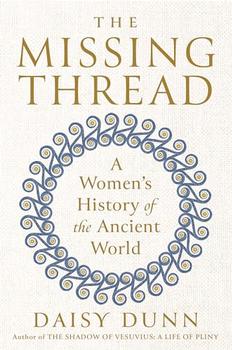Summary | Excerpt | Reviews | Beyond the Book | Readalikes | Genres & Themes | Author Bio

Investigations into the Strange New Science of the Self
by Anil Ananthaswamy
Studies in healthy patients showed that these two dimensions of awareness are inversely correlated: if you are paying attention to the external world, then activity in the network associated with external awareness goes up while the regions associated with internal awareness dampen down. And vice versa.
Besides this frontoparietal network, there's another key region of the brain that's involved in conscious awareness: the thalamus. There are long-distance two-way connections between the thalamus and the frontoparietal network, and Laureys's work suggests that it's the dynamics of information exchange and processing in these regions that takes us from being merely aroused to being consciously aware.
However, throughout our discussion, Laureys repeatedly insisted, "We should not be neo-phrenologists." He was referring to the dubious field of phrenology pioneered by German doctor Franz Joseph Gall (1758–1828), who argued that each and every mental faculty was the product of a specific brain region, and that these regions created characteristic bumps on the skull. So you could, in theory, run your fingers over someone's skull and figure out the relative strength of these "organs" inside their brain.
The self, said Laureys, is not something that can be localized to one brain area.
When Laureys met Graham, he too found Graham a very depressed man. Laureys noticed Graham's blackened teeth; he had stopped brushing. Graham repeated the same story that he told Adam Zeman—that he was brain dead. "He was not faking anything," Laureys told me. "So we scanned him."
Did he object to being scanned? I asked.
"He said 'I don't care,'" said Laureys.
Despite his condition, Graham was still using the first-person pronoun, "I," to refer to himself.
Laureys's team produced both magnetic resonance imaging (MRI) and positron emission tomography (PET) scans of Graham's brain. The MRI scans showed no structural brain damage. But the PET images revealed something very interesting: the frontoparietal network associated with external and internal conscious awareness had very low metabolic activity. Part of the internal awareness network is the so-called default mode network (DMN), which has been shown to be active during self-referential activity. A key hub in this network is a brain region called the precuneus—one of the most connected regions in the brain. In Graham's case, the default mode network and the precuneus were far too quiet—almost down to levels Laureys had seen in patients in a state of unresponsive wakefulness. It's true that Graham was on medication, but Laureys thinks that medication alone could not explain the extent of the lowered metabolism.
The lowered metabolism had also spread to the lateral surface of the frontal lobes—specifically some regions that are known to be involved in rational thought.
Though both Laureys and Zeman cautioned against making too much out of one case, the results are suggestive. It's likely that the impaired metabolic activity in the midline regions had caused Graham to have an altered self-experience—maybe a greatly reduced sense of self. But because that lowered metabolic activity had spread to other regions of the frontal lobes, he was unable to talk himself out of that altered experience, as he otherwise might have. He became convinced he was brain dead.
A more recent case study, published in November 2014, also supports this hypothesis. Two Indian doctors were treating a sixty-five-year-old woman with dementia, when she began to show signs of classic Cotard's. "Our patient presented to us with beliefs like 'I think I am dead and what I am is not me,' 'I do not exist,' 'there is nothing in my brain, just vacuum,' and 'it is infectious and I'm infecting my close relatives and I am responsible for all their suffering,'" Sayantanava Mitra of the Sarojini Naidu Medical College, Agra, India, wrote to me in an email.
Excerpted from The Man Who Wasn't There by Anil Ananthaswamy. Copyright © 2015 by Anil Ananthaswamy. Excerpted by permission of Dutton. All rights reserved. No part of this excerpt may be reproduced or reprinted without permission in writing from the publisher.






Your guide toexceptional books
BookBrowse seeks out and recommends the best in contemporary fiction and nonfiction—books that not only engage and entertain but also deepen our understanding of ourselves and the world around us.